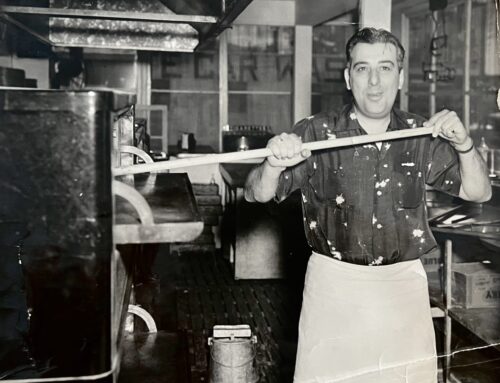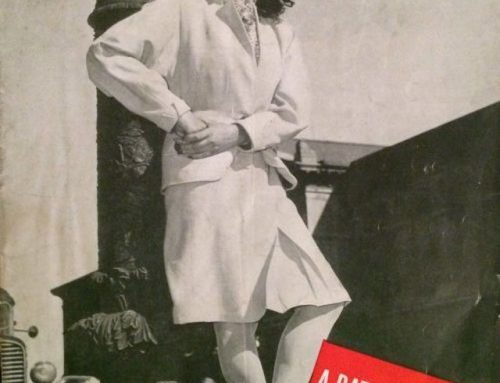In Evansville, Indiana, the NAACP and IBEW are training Black people for work in the clean energy industry, aiming for an equitable transition away from fossil fuels
By Audrey Henderson
Sidney Mobley was struggling. Mobley, a welder in Evansville, Indiana, had not done much welding in the past two years, because the company that represented his main source of work moved its operations to Italy. Faced with dwindling income and a nonworking vehicle, he moved in with his sister, picking up occasional welding work and other odd jobs wherever he could. “The type of welding I did [was] pressure welding,” he said. “I was making gas fired air conditioners. I’ve been working at different places. I worked at a place that welds tire metal rims for, like, Tora and Honda lawnmowers and stuff. It really wasn’t nothing complicated compared to making gas fired air conditioners.”
Mobley’s experience is not uncommon these days, as communities built on an economic base of manufacturing and extraction continue to lose those industries. Evansville, located in the far southwestern corner of the state, near the Kentucky border, lies deep within coal country. As is the case all across the region (and the rest of the country), the local Black community, the Indigenous community, and other people of color have suffered disproportionately from environmental pollution in the Evansville area, as well as from the declining coal industry—and, more recently, the coronavirus pandemic.
In other words: the groups who bore most of the negative effects from these industries in their heyday are also among the most affected by their decline. It’s all part of what Denise Abdul-Rahman, Regional Field Organizer for the Midwest and Plains States Environmental & Climate Justice Program for the NAACP, calls “the transition for underserved communities that have been hosting pollution, communities of African descent that have been impacted by unjust racial systems that have excluded them and not given them access to opportunities.”
Like other social justice organizations, the NAACP aims to address this crisis, at least in part, by equipping workers for employment in new industries, like clean energy. Recently, Mobley was one of four trainees who completed solar panel installer training with the initial cohort of the Evansville, Indiana NAACP PowerUp program, which coordinated the training with the International Brotherhood of Electricians (IBEW). “Learning about the solar panels [was something] I always was interested in, because it’s a thing to help us with this climate change we’re having,” Mobley said. “That was something interesting for me because I’m a welder, and [I was interested in] being able to see how electricity really works.”
Support independent, context-driven regional writing.
The PowerUp program, which originated with the Colorado/Montana/Wyoming chapter of the NAACP, is part of what Abdul-Rahman calls the “Black to Green” pipeline to job opportunities in the clean energy sector. Trainees receive extensive classroom and hands-on instruction in solar panel installation at no cost. The Evansville NAACP PowerUp program targets unemployed and underemployed workers, like Mobley, as well as formerly incarcerated people and young adults between the ages of eighteen and twenty-five, according to Abdul-Rahman. With the Evansville program, the Midwest Renewable Energy Association was recruited to construct a dedicated online portal that would be culturally relevant to people of color.
The program takes “a holistic view of the environmental injustice struggle to transition,” Abdul-Rahman said. In other words, it’s not enough to invest in renewable energy production. Environmental justice also requires equitable access to safe, good-paying jobs with protections for workers and communities, including those harmed most by industries in the past—from disproportionate health effects of factories and mining on poor communities and communities of color, to being shut out of the high-paying jobs that come with them.
Upon completing the program, candidates may work on local solar panel installation projects, or eventually gain entry into IBEW apprenticeship programs, with access to union jobs as full-fledged electricians and solar panel installers. “Eventually they would become journeymen and (begin) working any electrical field that they want,” Brandon Wongngamnit, business manager for the Evansville Local 16 chapter of the IBEW, said. “Once some of these larger solar projects begin, we will be able to give individuals a path to an apprenticeship that will result in sustainability of higher income (and) of stability, with good benefits and retirement,” Wongngamnit said.
Mobley first learned about the PowerUp program through Reverend Gerald Arnold, president of the Evansville NAACP. However, he didn’t actually apply until he was persuaded to do so by Wongngamnit, who approached Mobley while he was working behind the counter at a local restaurant and gave him his card. “He (Wongngamnit), had been trying to get me to get in there because I was good with people,” Mobley said.
Mobley did not have a computer during the PowerUp program, so he substituted printed workbooks for the online portion of the training. He has since completed the preliminary steps for entering an apprenticeship with IBEW and is looking forward to beginning formal training as an electrician. “(PowerUp) helped me learn to appreciate how we use electricity without coal and depleting our climate, because it really is changing,” he said, and provided a clear pathway for how he can get involved in the transition.
Lack of computer access also impacted the initial training cohort, according to Abdul-Rahman. Ordinarily the local library and its public computers would have been an available resource for trainees like Mobley who did not have their own computers. However, due to the pandemic, the library was only open during limited hours, with only ten computers available. As a result, a second trainee resorted to completing the online portion of the program on a mobile device, while another trainee eventually dropped out. (The Evansville NAACP is seeking a technology partner to supply laptop computers for future cohorts, according to Abdul-Rahman.)
The PowerUp program also strengthens union membership in the region. In Vanderburgh County, where Evansville is located, only licensed electricians are allowed to install solar panels outside of supervised projects, so Wongngamnit said the IBEW views the PowerUp program as a steppingstone to increasing the number of Black people, Indigenous people, and people of color in apprenticeships as electricians. “We have a whole lot of solar that’s coming up. I really believe that, once the participants go through that (PowerUp) class…We can put them out to work on some of these solar farms. And they would get a taste of it and say, ‘Hey, I really enjoy doing this and I’m making good money.’”
Brad Morton founded Morton Solar, a solar installation company located in Evansville, fifteen years ago and holds the title of CEO. His grandfather and uncles worked in the coal mines. “Our goal is to create a transition for our economy into cleaner energy,” Morton said. “Here in this corner of the state, traditionally our economy has relied on the coal industry. I feel that the evidence is very easily provable, scientifically, that (human generated) carbon emissions are much too high for the earth to be able to process. Consequently, we’re now seeing the evidence of climate change more than ever.”
Morton Solar participated in training the first cohort of PowerUp trainees. The company was initially approached by Abdul-Rahman to install solar panels on the roof of the Greater St. James Community Center, a local African American church. Morton said the company intends to continue working with the NAACP and the PowerUp program as a means to recruit more Black workers and other workers of color. “We are a union company; we are an IBEW company. So, our hands-on and installation positions will need to go through IBEW at a point that fits them. Then, Morton will be able to bring [the new members] into our projects,” Morton said.
The coronavirus pandemic has put a hold on apprenticeship training, and has also slowed hiring at Morton Solar. But Wongngamnit is optimistic. The goal of the project is to combine good jobs with sustainable energy production in a way that addresses some of the historical inequities in the region. And he believes that, once the pandemic has been brought under control, the “Black to Green” pipeline that Abdul-Rahman speaks of will be a success. “There’s always going to be a need for energy and electricity. We are on the frontline of that transition right now, where we’re moving from fossil fuels into renewables,” Wongngamnit said. “The ultimate goal is sustainability of career.” ■
Audrey Henderson is a freelance writer based in the greater Chicago area. Her work has been featured in Next City, Chicago Architect magazine, Global Traveler and Transitions Abroad, along with trade and consumer print and online publications worldwide.
Cover collage by Njaimeh Njie, from sources here, here, here, and here.
Belt Magazine is a 501(c)(3) nonprofit organization. To support more independent writing and journalism made by and for the Rust Belt and greater Midwest, make a donation to Belt Magazine, or become a member starting at just $5 a month.






